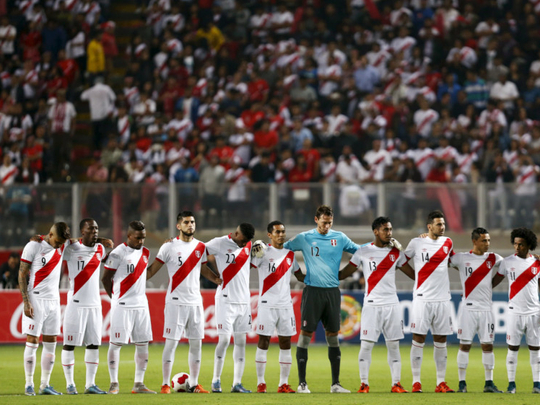
Until Friday night, the Stade de France in the northern suburbs of Paris was a cauldron of dreams. As a schoolgirl in the capital, it was where I watched Zinedine Zidane, the superstar footballer from the same Algerian background as me, lift the 1998 World Cup in front of a united nation. People from every class, colour and faith were overjoyed to see Zizou and teammates from mainly working class immigrant families turn the magnificent stadium into a symbol of pride and passion.
Now the stadium is a crime scene — the place where suicide bombers exploded devices that left three dead and many more injured. The first blasts of the worst terrorist massacres in the country’s recent history echoed across the capital and were broadcast live during a friendly between Les Bleus and Germany, the current world champions.
The distraction of sport soon became utterly irrelevant as reports of other murders came through, including the slaughter at the Bataclan concert hall — another delightful building once associated with youthful bliss listening to music.
Parisians and visitors sitting in cafes and restaurants nearby — doing exactly what you’re meant to do in the city of light — were mown down by automatic gunfire or torn apart by grenades. Horror had returned to Paris just 10 months after the Charlie Hebdo atrocities claimed 17 victims.
Back then, the murderers were thugs claiming allegiance to both Daesh (the self-proclaimed Islamic State of Iraq and the Levant) and to Al Qaida. They were known to the security services, to the extent that they had once been placed under strict surveillance. Yet — incredibly — they apparently had no difficulty acquiring the guns and ammunition to attack what they considered to be a blasphemous magazine, as well as police officers and members of the city’s Jewish community.
Much was made of the Charlie Hebdo killers’ upbringings on the highrise estates which border the stadium — areas that even the Socialist party Prime Minister, Manuel Valls, admitted were part of the social “apartheid” that prevails in France. He spoke frankly about the delinquency, the discrimination and the poverty associated with the kind of neighbourhoods that are liable to produce violent criminals: areas that feel like a parallel universe to the romantic glory of other more central parts of Paris.
Now, once again, gunmen and killers have captured the world’s attention. Their vile acts will no doubt be used to highlight divisions in French society. Already, people are discussing the racial and religious origins of the eight known attackers who either blew themselves up or were killed by police on Friday night. The risk is however, that this places them in an underclass narrative in which anyone from an ethnic minority background is put under intense suspicion.
The joy and hope for the future of a mainly immigrant team winning the greatest prize in football for France will be relegated to distant memory. And along with it, the aspirations of largely peaceful communities who want nothing more than a fair chance in life.
The killers have completed their malevolent mission; France’s once glorious national stadium on the edge of its capital is reduced to a dark symbol of barbarism.












